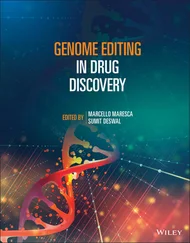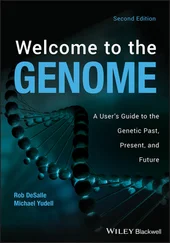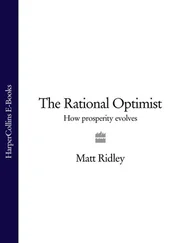Genome - Matt Ridley
Здесь есть возможность читать онлайн «Genome - Matt Ridley» весь текст электронной книги совершенно бесплатно (целиком полную версию без сокращений). В некоторых случаях можно слушать аудио, скачать через торрент в формате fb2 и присутствует краткое содержание. Жанр: Старинная литература, на английском языке. Описание произведения, (предисловие) а так же отзывы посетителей доступны на портале библиотеки ЛибКат.
- Название:Matt Ridley
- Автор:
- Жанр:
- Год:неизвестен
- ISBN:нет данных
- Рейтинг книги:5 / 5. Голосов: 1
-
Избранное:Добавить в избранное
- Отзывы:
-
Ваша оценка:
- 100
- 1
- 2
- 3
- 4
- 5
Matt Ridley: краткое содержание, описание и аннотация
Предлагаем к чтению аннотацию, описание, краткое содержание или предисловие (зависит от того, что написал сам автор книги «Matt Ridley»). Если вы не нашли необходимую информацию о книге — напишите в комментариях, мы постараемся отыскать её.
Matt Ridley — читать онлайн бесплатно полную книгу (весь текст) целиком
Ниже представлен текст книги, разбитый по страницам. Система сохранения места последней прочитанной страницы, позволяет с удобством читать онлайн бесплатно книгу «Matt Ridley», без необходимости каждый раз заново искать на чём Вы остановились. Поставьте закладку, и сможете в любой момент перейти на страницу, на которой закончили чтение.
Интервал:
Закладка:
In the heyday of eugenic IQ testing in the 1920s, there was no evidence for heritability of I Q . It was just an assumption of the practitioners. Today, that is no longer the case. The heritability of IQ (whatever IQ is) is a hypothesis that has been tested on two sets of people: twins and adoptees. The results, however you look at them, are startling. No study of the causes of intelligence has failed to find a substantial heritability.
There was a fashion in the 1960s for separating twins at birth, especially when putting them up for adoption. In many cases this was done with no particular thought, but in others it was deliberately done with concealed scientific motives: to test and (it was hoped) demonstrate the prevailing orthodoxy — that upbringing and environment shaped personality and genes did not. The most famous case was that of two New York girls named Beth and Amy, separated at birth by an inquisitive Freudian psychologist. Amy was placed in the family of a poor, overweight, insecure and unloving mother; sure enough, Amy grew up neurotic and introverted, just as Freudian theory would predict. But so - down to the last details - did Beth, whose adoptive mother was rich, relaxed, loving and cheerful. The differences between Amy's and Beth's personalities were almost undetectable when they rediscovered each other twenty years later.
Far from demonstrating the power of upbringing to shape our minds, the study proved the very opposite: the power of instinct.6
Started by environmental determinists, the study of twins reared apart was later taken up by those on the other side of the argument, in particular Thomas Bouchard of the University of Minnesota.
Beginning in 1979, he collected pairs of separated twins from all over the world and reunited them while testing their personalities I N T E L L I G E N C E 8 3
and I Q s . Other studies, meanwhile, concentrated on comparing the I Q s of adopted people with those of their adoptive parents and their biological parents or their siblings. Put all such studies together, totting up the IQ tests of tens of thousands of individuals, and the table looks like this. In each case the number is a percentage correlation, one hundred per cent correlation being perfect identity and zero per cent being random difference.
The same person tested twice 87
Identical twins reared together 86
Identical twins reared apart 76
Fraternal twins reared together 5 5
Biological siblings 47
Parents and children living together 40
Parents and children living apart 31
Adopted children living together 0
Unrelated people living apart 0
Not surprisingly, the highest correlation is between identical twins reared together. Sharing the same genes, the same womb and the same family, they are indistinguishable from the same person taking the test twice. Fraternal twins, who share a womb but are genetically no more similar than two siblings, are much less similar, but they are more similar than ordinary brothers, implying that things experienced in the womb or early family life can matter a little. But the astonishing result is the correlation between the scores of adopted children reared together: zero. Being in the same family has no discernible effect on IQ at all.7
The importance of the womb has only recently been appreciated.
According to one study, twenty per cent of the similarity in intelligence of a pair of twins can be accounted for by events in the womb, while only five per cent of the intelligence of a pair of siblings can be accounted for by events in the womb. The difference is that twins share the same womb at the same time, whereas siblings do not. The influence upon our intelligence of events that happened 8 4 G E N O M E
in the womb is three times as great as anything our parents did to us after our birth. Thus even that proportion of our intelligence that can be attributed to 'nurture' rather than nature is actually determined by a form of nurture that is immutable and firmly in the past. Nature, on the other hand, continues to express genes throughout youth. It is nature, not nurture, that demands we do not make fatalistic decisions about children's intelligence too young.8
This is positively bizarre. It flies in the face of common sense: surely our intelligence is influenced by the books and conversations found in our childhood homes? Yes, but that is not the question.
After all, heredity could conceivably account for the fact that both parents and children from the same home like intellectual pursuits.
No studies have been done - except for twin and adoption studies
- that discriminate between the hereditary and parental-home explanation. The twin and adoption studies are unambiguous at present in favouring the hereditary explanation for the coincidence of parents' and children's I Q s . It remains possible that the twin and adoption studies are misleading because they come from too narrow a range of families. These are mostly white, middle-class families, and very few poor or black families are included in the samples.
Perhaps it is no surprise that the range of books and conversations found in all middle-class, American, white families is roughly the same. When a study of trans-racial adoptees was done, a small correlation was found between the children's IQ and that of their adoptive parents (nineteen per cent).
But it is still a small effect. The conclusion that all these studies converge upon is that about half of your IQ was inherited, and less than a fifth was due to the environment you shared with your siblings - the family. The rest came from the womb, the school and outside influences such as peer groups. But even this is misleading.
Not only does your IQ change with age, but so does its heritability.
As you grow up and accumulate experiences, the influence of your genes increases. What? Surely, it falls off? No: the heritability of childhood IQ is about forty-five per cent, whereas in late adolescence it rises to seventy-five per cent. As you grow up, you gradually express I N T E L L I G E N C E 8 5
your own innate intelligence and leave behind the influences stamped on you by others. You select the environments that suit your innate tendencies, rather than adjusting your innate tendencies to the environments you find yourself in. This proves two vital things: that genetic influences are not frozen at conception and that environmental influences are not inexorably cumulative. Heritability does not mean immutability.
Francis Galton, right at the start of this long debate, used an analogy that may be fairly apt. 'Many a person has amused himself, he wrote, 'with throwing bits of stick into a tiny brook and watching their progress; how they are arrested, first by one chance obstacle, then by another; and again, how their onward course is facilitated by a combination of circumstances. He might ascribe much importance to each of these events, and think how largely the destiny of the stick had been governed by a series of trifling accidents.
Nevertheless, all the sticks succeed in passing down the current, and in the long run, they travel at nearly the same rate.' So the evidence suggests that intensively exposing children to better tuition has a dramatic effect on their IQ scores, but only temporarily. By the end of elementary school, children who have been in Head Start programmes are no further ahead than children who have not.
If you accept the criticism that these studies mildly exaggerate heritability because they are of families from a single social class, then it follows that heritability will be greater in an egalitarian society than an unequal one. Indeed, the definition of the perfect meritoc-racy, ironically, is a society in which people's achievements depend on their genes because their environments are equal. We are fast approaching such a state with respect to height: in the past, poor nutrition resulted in many children not reaching their 'genetic' height as adults. Today, with generally better childhood nutrition, more of the differences in height between individuals are due to genes: the heritability of height is, therefore, I suspect, rising. The same cannot yet be said of intelligence with certainty, because environmental variables - such as school quality, family habits, or wealth — may be growing more unequal in some societies, rather than more equal. But 8 6 G E N O M E
Читать дальшеИнтервал:
Закладка:
Похожие книги на «Matt Ridley»
Представляем Вашему вниманию похожие книги на «Matt Ridley» списком для выбора. Мы отобрали схожую по названию и смыслу литературу в надежде предоставить читателям больше вариантов отыскать новые, интересные, ещё непрочитанные произведения.
Обсуждение, отзывы о книге «Matt Ridley» и просто собственные мнения читателей. Оставьте ваши комментарии, напишите, что Вы думаете о произведении, его смысле или главных героях. Укажите что конкретно понравилось, а что нет, и почему Вы так считаете.












